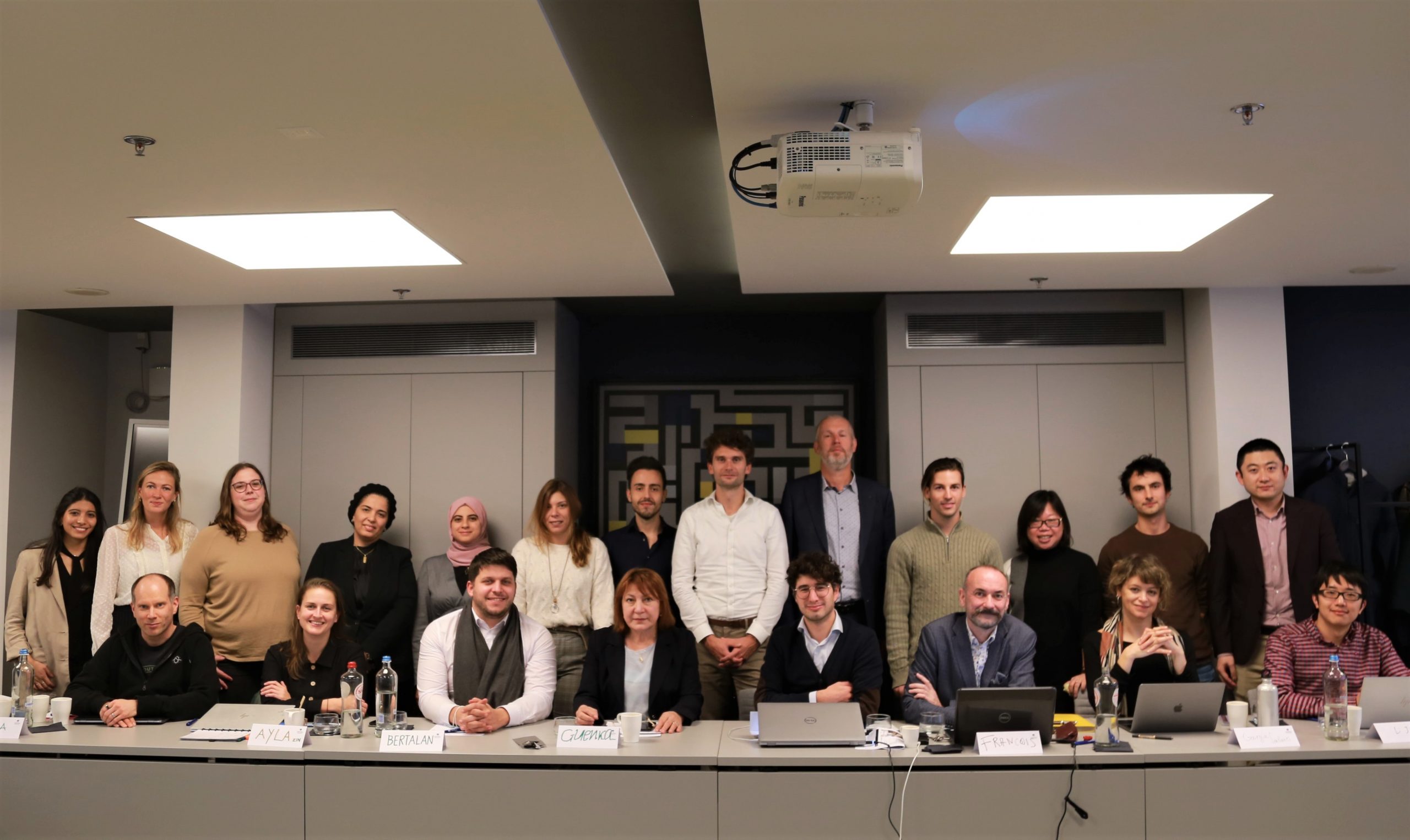
10 Nov HTx Methods Workshop
Between 4 – 5 November 2021 HTx members organised a workshop in Utrecht, sharing the new methods developed in predictive modelling, evidence synthesis, data processing and visualization and machine learning since the start of the project.
Wim Goettsch, HTx project coordinator, opened the workshop with a warm welcome and shared his expectation of the workshop. The first day contained three sessions focused on predictive modelling.
On day one of the workshop, Tuur Leeuwenberg, from UMC Utrecht, gave an introduction on prediction models and challenges in the development and validation of the models, especially in patient selection settings, Konstantina Chalkou, from the University of Bern, presented the research done at the university on the prognostic model and prediction model for treatment selection in multiple sclerosis patients and Pekka Siirtola, from University of Oulu introduced how individualized models can be developed with active learning and adaptive models, based on machine learning and AI.
The second day started with two breakout sessions. Tasnim Hamza, from the University of Bern, presented her work on a generic framework for evidence synthesis, which can incorporate data from different study designs (both RCT and NRS) as well as different formats (both individual participant data and aggregated data). She then moved on to the subject of using network meta-analysis for dose-response data. The other breakout session covered topics in machine learning. Pekka Siirtola, from the University of Oulu, presented ClinFlow, an online data analysis tool for data processing and visualization (you can access and try ClinFlow via the following link: https://oanastoicescu11.shinyapps.io/Clinflow-a-Shiny-app-for-exploring-longitudinal-clinical-data/). Francisco Javier Somolinos Simón and Jose Tapia Galisteo, from Universidad Politécnica de Madrid, UPM, introduced clustering analysis and stratification of patient subgroups.
The workshop ended with two presentations from HTA agencies. Saskia Knies, from Zorginstituut Nederland, ZIN, gave an introduction to ZIN’s current and future projects and how the methods developed in HTx can be linked to ZIN’s work. Dalia Dawoud, from National Institute for Health and Care Excellence (NICE), provided a summary of the development of NICE in the past 22 years, and the strategies in improving health and wellbeing, and their relevance to HTx outputs.
